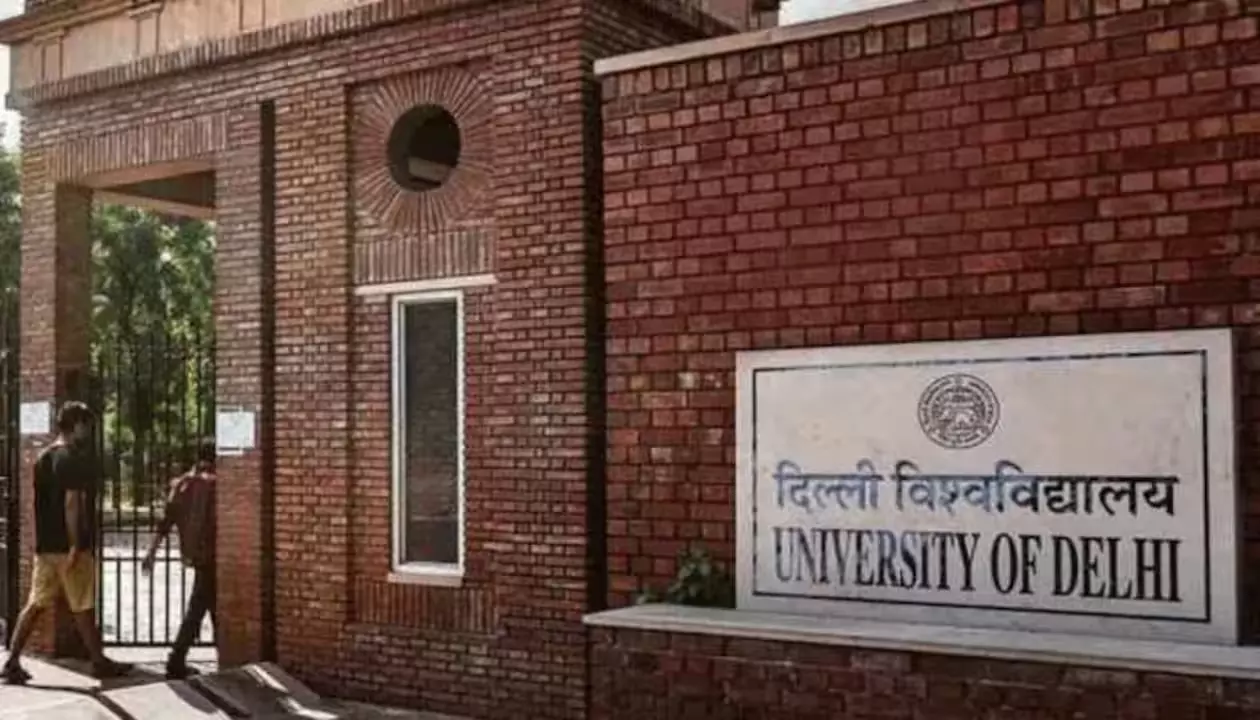The Academic Council of Delhi University has pulled the poet and philosopher Allama Mohammad Iqbal from the BA political science curriculum.
The Academic Council of Delhi University recently approved several changes to the syllabus mainly withdrawing the Muslim history and names, including the poet and philosopher Allama Iqbal, from the BA political science curriculum.
Officials have stated that the chapter titled ‘Modern Indian Political Thought’ is currently included in the sixth-semester paper of the BA program. However, following the Academic Council’s decision, the matter will now be presented to the university’s Executive Council for a final decision.
Meanwhile, the Hindutva Akhil Bharatiya Vidyarthi Parishad (ABVP), which is affiliated with the Rashtriya Swayamsevak Sangh (RSS), expressed its approval of the decision.
A motion was brought regarding a change in the syllabus of political science. As per the motion, there was a chapter on Iqbal that has been removed from the syllabus.”
An Academic Council member said.
One of the units in the syllabus is dedicated to Allama Muhammad Iqbal and is titled ‘Iqbal: Community’. This unit is part of a broader course that comprises a total of 11 units. The primary objective of the course is to examine significant themes by studying the ideas and philosophies of various individual thinkers.
The course has been designed to give students a glimpse into diversity within Indian political thought.”
the syllabus mentions.
The ABVP expressed its support for the decision on the poet scholar who played a significant role in the Two Nation Theory.
Allama Iqbal was a prominent philosopher, poet, and politician from British India. He was born on November 9, 1877, in Sialkot, Punjab, and he passed away on April 21, 1938, in Lahore, Punjab, British India (which is now Pakistan).
Iqbal is widely regarded as one of the most influential figures in Urdu literature and is known for his poetic works in both Urdu and Persian languages. His poetry often focused on themes of spirituality, nationalism, culture, politics, and the revitalization of the Muslim community in South Asia.
Apart from his literary contributions, Iqbal was also an eminent philosopher and a strong advocate for the rights and welfare of the Muslim population. He emphasized the importance of selfhood, self-discovery, and the pursuit of knowledge in his philosophical ideas. Iqbal’s concept of “Khudi” (selfhood) called for individuals to realize their full potential and work towards the betterment of society.
Mohammad Iqbal’s thoughts and writings continue to be widely studied and revered, and he is considered a national poet in Pakistan. His poetry and philosophical ideas have left a lasting impact on the cultural, intellectual, and political landscape of the region.




